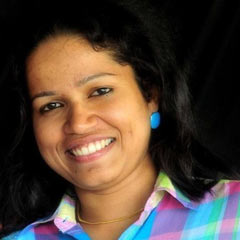Kozhikode: A lot has changed in the life of Sajeesh Parambath in between the two New Years, 2018 and 2019. The memories of a dreadful year gone by are still fresh, but he does not want to give up, for he has two little children to raise in the absence of his wife Lini P, who had succumbed to Nipah fever last year on May 20. The dreadful disease had raged for a brief while in parts of Kozhikode and Malappuram districts in northern Kerala, claiming more than a dozen lives, including that of Lini, a nurse at the Perambra taluk hospital.
With Lini gone, her husband, who returned from the Middle East, took up the care of their two children – Sidhaarth, 2, and Rithul, 4. In a compassionate gesture, the Kerala government had offered a clerical job for Sajeesh at the nearby primary health centre at Chembanoda as he preferred to stay back, leaving his job in Bahrain. Rithul is in the UKG now and Siddharth is yet to commence his education.
“Three weeks after her death, Rithul could adjust to the reality. He now tells the people who visits our home that Amma is no more, but Siddharth, I don't know. Maybe he forgot her presence and got closer to me that everyday he waits for me to return from work and wants me for everything,” Sajeesh said.

Early days together
Lini and Sajeesh married in 2012 after a brief courtship. They met for the first time in Kannur where both were working – Sajeesh at a private firm and Lini at a hospital. They had met through Sajeesh's friend, who was Lini's cousin. That was a time he was seeking marriage proposals, and they exchanged phone numbers and got closer. Two months after meeting her, Sajeesh informed his family at Vadakara. Lini's father Nanu had died a year ago and she was the only earning member for mother Radha and two sisters – Liji and Libi.
The families happily agreed to the marriage and they got married in April 2012. After marriage, Lini worked at a private hospital in Kozhikode and quit after giving birth to their first child. After a break, she joined the Aids Control Society at Vadakara, a Central government undertaking, as a nurse-cum-counsellor. After their second child was born in 2016, she started working at the Perambra taluk hospital. Sajeesh, meanwhile, left for Bahrain.
The final days
“Lini worked there for nearly one and a half years. After I moved to Bahrain, we used to video call almost everyday and on May 16, she said, she was having a slight fever. Then I told her to consult any nearby physician. She consulted doctors at the same hospital where she worked and was admitted for one-and-a-half days. However, the fever persisted. Though her temperature had reached 130 degree she did not look tired when we saw each other on video call,” Sajeesh remembered.
On May 17, the hospital asked to shift her to Government Medical College Hospital. On the way to MCH, she was taken to another private hospital and the presence of the Nipah virus was almost confirmed by then. Lini, understanding the situation, sent her mother Radha back home. Her sister's husband and one cousin accompanied her to the MCH.
On the next day, she was shifted to the Chest Hospital and Sajeesh started from Bahrain on May 19. He landed on May 20, early morning.
“I talked to the doctor in charge. She could talk then. She held my hand and talked. At that time three or four patients were there and three of them were unconscious. Since she was conscious and talking, I was hopeful. Her oxygen level was also normal. Lini's mother is epileptic and she was also brought to the medical college in between. So the family members were literally moving from one hospital to the other. By around 6 pm, Nipah fever was confirmed and patients were cleared from the hospital. By 12.15 am, she breathed her last,” he recalled.
Coping with loss
A job in homeland was a relief for the young man, so that he could take care of the children better, but taking care of them during day was a bother. At Sajeesh's house at Vadakara, only his father is present. So, he decided to stay at Lini's house, where her sisters also lived with their children.
“Rithul is the eldest of them. He plays and grows together with his three cousins – one is the son of Lini's elder sister and the other two - a boy and a girl - of her youngest sister. I was the first son-in-law to the family. I am thankful to Lini's sisters for taking care of my children without making them feel the void created by their mother's absence,” Sajeesh said.
The World Health Organisation had paid tribute to Lini. In a tweet, WHO'S Health Workforce Director Jim Campbell had said: "Remember them, lest we forget: Razan al-Najjar (Gaza); Lini Puthussery (India); Salome Karwah (Liberia)."

















